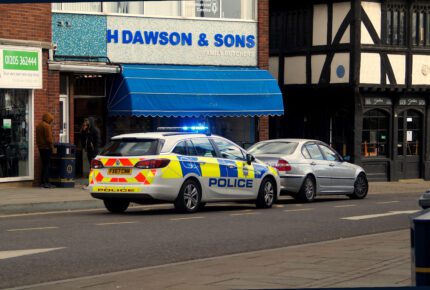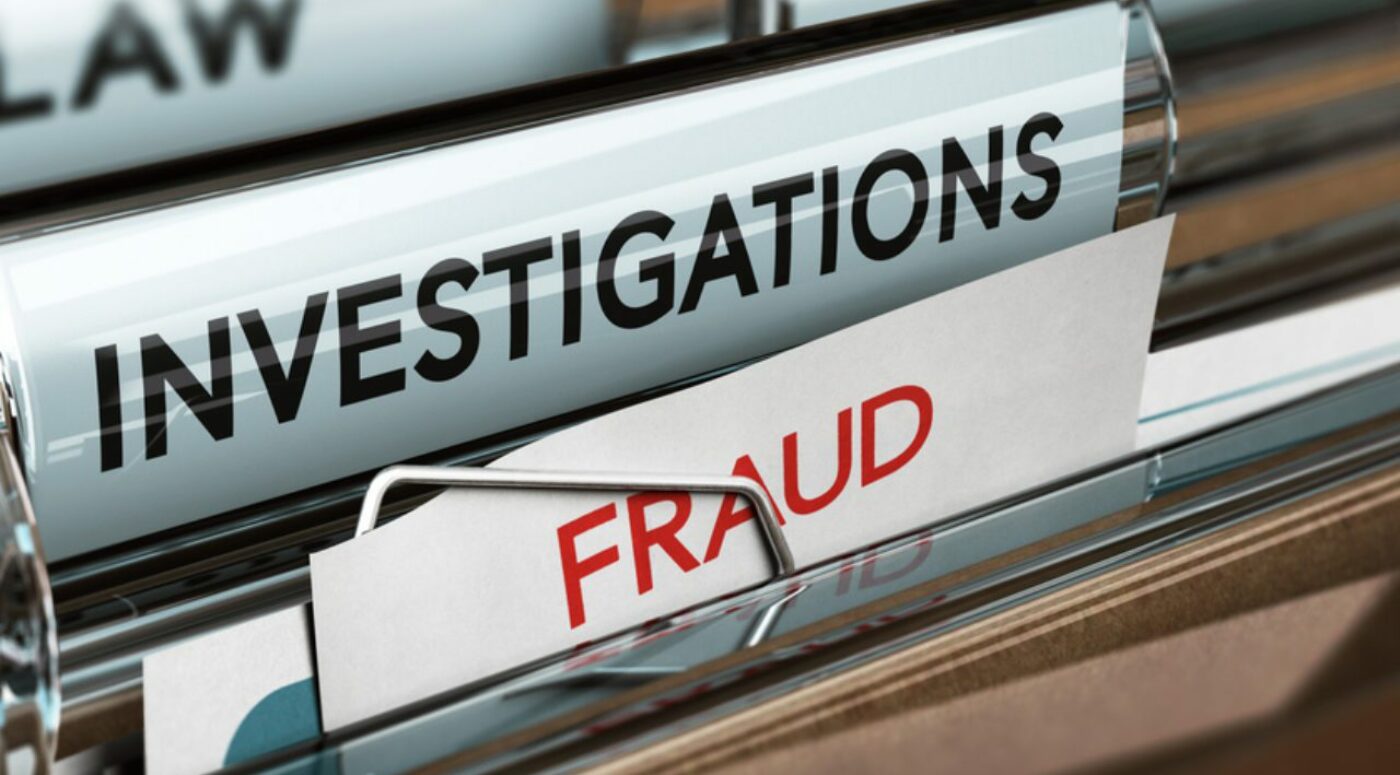

Fraudulent trading offences are unfortunately on the rise in the UK, with the latest data showing a year-on-year increase in reported cases. If you find yourself arrested or charged with this offence, seek help from a solicitor as early as possible to ensure your rights are protected and you receive expert advice tailored to your situation. This article answers some of the most common questions you might have, such as whether you need a solicitor for fraudulent trading, potential defences you could use, and whether you are likely to be granted bail. We will also discuss other essential steps you should take if you find yourself facing such serious charges.
Do I need a solicitor for fraudulent trading?
Fraudulent trading is a serious offence under English law, involving the carrying on of business with the intent to defraud creditors or for any fraudulent purpose. If you are facing an allegation of fraudulent trading, you must seek the assistance of a criminal defence solicitor. Here’s why having a solicitor can be indispensable:
- Firstly, a solicitor has a deep understanding of the complex legal framework surrounding fraudulent trading. They can help you comprehend the specific charges against you and the potential consequences, which may include imprisonment, fines, and disqualification from acting as a company director.
- Secondly, a solicitor can provide expert advice and representation. They can review the details of your case, gather relevant evidence, and aim to build a strong defence strategy. This may involve challenging the prosecution’s evidence, presenting witness testimonies, or highlighting any procedural errors that could aid in your defence.
- Thirdly, the legal process can be daunting and stressful. A solicitor can guide you through each stage, from police interviews to court appearances, ensuring that your rights are protected and that you are well-prepared. They can also negotiate on your behalf, potentially reducing the severity of the charges or negotiating for a lesser sentence.
- Lastly, fraudulent trading cases often involve intricate financial records and complex transactions. A solicitor experienced in such cases can work with forensic accountants and other specialists to analyse financial data and uncover any discrepancies that may support your defence.
What are possible defences for fraudulent trading?
Dealing with charges of fraudulent trading can be incredibly stressful, but understanding the possible defences available to you can provide some much-needed clarity. Fraudulent trading, as defined under Section 993 of the Companies Act 2006, involves knowingly participating in business with the intent to defraud creditors or for any fraudulent purpose. Common defences that a criminal defence solicitor might explore on your behalf if you are facing such charges include:
- Lack of Intention: One of the primary defences against fraudulent trading is proving the absence of intent to defraud. You have to be able to demonstrate that any misleading actions were not carried out with fraudulent intent. For instance, you may argue that the decision in question was made in good faith and that the negative outcome was unforeseen.
- Due Diligence: Another key defence is showing that you undertook extensive due diligence before making any business decisions. If you can prove that you consulted with experts, reviewed all relevant documents, and took prudent steps to ensure that your actions were above board, this may serve as a credible defence.
- Reliance on Professional Advice: If you relied on professional advice (from accountants, financial advisors, or legal counsel) when making business decisions, you might argue that you were acting on their recommendation. Demonstrating that you consulted with reputable professionals can help establish that you did not intend to defraud.
- Limited Role: It might also be possible to defend against charges by showing that your role in the company was limited and that you did not have significant control or oversight over the business activities in question. This defence can be particularly relevant if you were not involved in the decisions that led to the allegations.
Will I get bail for fraudulent trading?
When facing charges of fraudulent trading, one of the first things you might worry about is whether you will be granted bail. Bail is essentially a temporary release from custody while your case progresses through the court system. It allows you to continue with your daily life until your trial date.
Whether or not you will get bail depends on several factors that the court will consider, such as the severity of the fraudulent trading allegations. If the fraudulent activities are substantial and involve large sums of money, the court might view this more seriously, making it harder to obtain bail. However, if the allegations are less severe, your chances of getting bail are potentially higher.
Similarly, your personal circumstances and history will be scrutinised. This includes your criminal record, if you have one, as well as your behaviour in previous interactions with the legal system. If you have a history of attending court dates and complying with legal requirements, the court may be more inclined to grant you bail. Conversely, if you have a history of skipping bail or failing to appear in court, securing bail this time could be much more challenging.
Will I have to go to court if I’m arrested or charged for fraudulent trading?
Whether you will have to go to court largely depends on the specifics of your case and how it progresses through the legal system. Fraudulent trading is considered a serious offence under British law, typically involving deliberate deceit to make personal or business gains at the expense of others.
There are two main avenues through which your case might be handled. The first is an out-of-court settlement, although this is less common for serious fraudulent trading cases. In these scenarios, negotiations might result in a resolution without the need for a formal court appearance. However, the second, and more likely, scenario involves going to court, especially if the case involves significant sums of money or a substantial number of victims.
If your case proceeds to court, it could be heard in either the Magistrates’ Court for less severe cases or the Crown Court for more serious allegations. The process typically begins with an initial hearing where the charge is read, and you are asked to enter a plea. If you plead not guilty, a trial date will be set. During the trial, evidence will be presented and witnesses may be called to testify.
Will I go to jail if found guilty of fraudulent trading?
Some of the key factors that determine if you might go to jail include:
- Severity of the Offence: The seriousness of the fraudulent activities plays a crucial role. Larger-scale frauds involving substantial sums of money or affecting numerous victims tend to attract harsher penalties, including longer prison sentences.
- Role and Intent: The court will look at your role in the fraudulent activities and your intent. Active participation with clear intent to defraud is treated more severely than peripheral involvement or acting under duress.
- Previous Convictions: Your criminal history significantly impacts sentencing. Prior convictions, especially for similar offences, can lead to harsher penalties.
- Mitigating Circumstances: Details such as showing genuine remorse, cooperating with the authorities, and taking steps to make restitution to the victims can influence the court’s decision.
Will I go to jail if it’s my first offence of fraudulent trading?
There is no definitive answer as to whether or not you will go to jail for a first time offence of fraudulent trading. When courts consider sentencing for fraudulent trading, they will typically look at:
- The scale and impact of the fraud
- The amount of money involved
- The length of time over which the fraudulent activities occurred
- Whether there are any victims and the extent of harm caused to them
- Your role in the fraudulent activity (e.g., were you the primary actor, an accomplice, or someone with a minor role?)
- Any previous convictions or cautions
For a first-time offender, the court may also take into account mitigating factors that could lessen the severity of the sentence. These might include:
- Evidence of genuine remorse and willingness to make amends
- Cooperation with the authorities
- Personal circumstances such as health issues
Can I get Legal Aid for fraudulent trading?
In England and Wales, legal aid for criminal cases like fraudulent trading is available, but there are specific conditions that you must meet:
- A means test to check whether you are financially eligible. This test considers your income, savings, and assets. If your financial resources are below a certain threshold, you may qualify for legal aid. However, if your finances are above the threshold, you might still be able to obtain legal aid by contributing towards your legal costs.
- A merits test to assess the seriousness of the charges you are facing and whether your case has a reasonable prospect of success. Fraudulent trading is considered a serious offence, and therefore you are more likely to pass the merits test.
Where to get more help
Whatever your situation, it is vital to have knowledgeable and experienced criminal defence solicitors on your side to ensure that your rights are protected and that you receive the best possible outcome. For dedicated support and guidance, get in touch with Stuart Miller Solicitors.
OUR COMMITMENTS TO YOU:
-
Responsive
A legal expert will consult you within 24 hours of making an enquiry.
-
Empathetic
We will always treat you with trust, understanding and respect.
-
Specialised
Your case will be handled by an expert who specialises in your type of offence.
-
Proactive
We will take early action to end proceedings as soon as it is practically and legally possible to do so.
-
Engaged
You will be kept updated on your case at all times. We will provide a named contact available to answer your questions.
-
Caring
We understand this is a difficult and stressful time for you and your family. Our team will support you every step of the way.
-
Tenacious
We will never give up on your case. We fight tirelessly to get you the best possible outcome.

